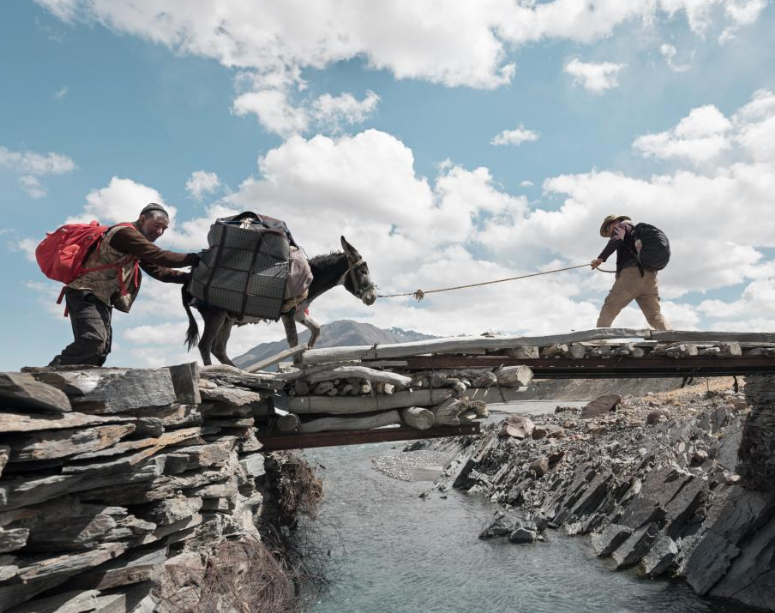Ali's friendly wife, Kushnamamash, baked us hot, gritty naan -- flatbread. We pitched our tents on the couple's narrow grass terrace. Ranks of poplars rustled in a silver breeze. The austere Wakhan was experiencing a green revolution. Tree plantations were shading the once naked canyon bottoms, and some Wakhi were tasting their first homegrown tomatoes and squash. It was the changing climate. Apricots were blossoming two months early, and a sudden tide of glacier melt was making irrigation easier.

It won't last, of course. Someday the glaciers of the Hindu Kush and Pamirs will drain away, and the old hungers will return. But for those shining days on foot, the roadless valleys of the Wakhan felt like a place I'd been walking toward my entire life without knowing it. Slate river shingle rang underfoot like coins. Crows pinwheeled in seamless blue skies. In September the high pastures of the Kyrgyz nomads in the eastern Wakhan held the sun's fire like old amber. Boulders the size of houses shone like colossal mirrors on the barren mountain slopes: Their surfaces had been buffed smooth as glass by long-vanished walls of ice.












